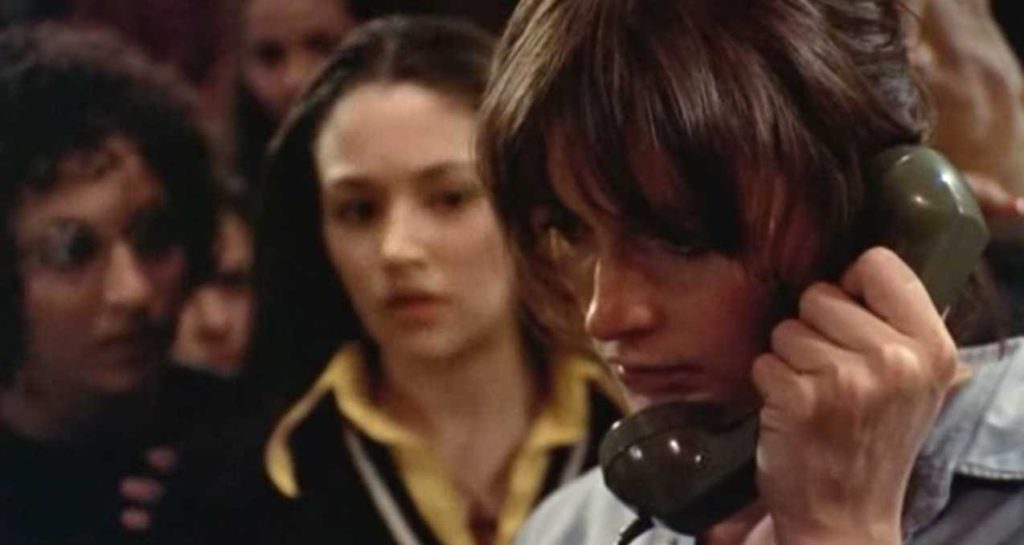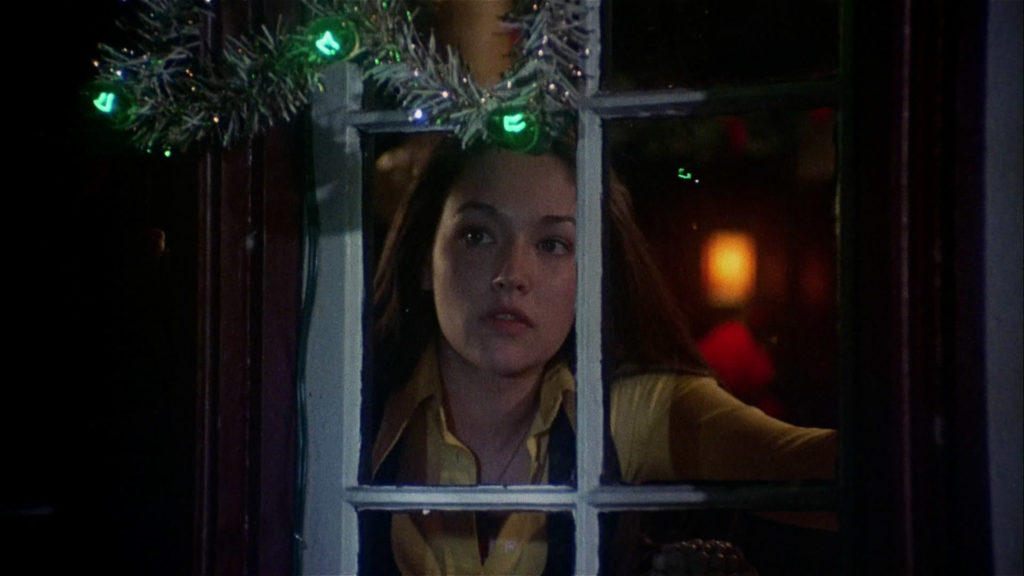“Black Christmas” is a 1974 film that, like “Halloween” or “The Texas Chainsaw Massacre” is part of the decade’s genesis into the realm of classic fright.
Its a simple movie with poor effects, bad lighting, and crude holiday decor. And that’s what makes it truly creepy. That it was made with 1974 technology brings more to the overall story. There’s just something about the way a film from that era looks that adds to the malaise.
It can also be said that “Black Christmas” is the first movie to juxtapose Halloween with Christmas. The story takes place at a sorority house in the days leading up to the Yuletide. The open depicts an unintentionally chilling rendition of the song Silent Night. A great death scene later on occurs with a gaggle of young carolers outside crooning O Come All Ye Faithful and its the type of thing that makes for an instant classic.
There’s no supernatural element at play, just an unknown madman hiding out in the attic of the sorority house, picking off the girls one by one in fairly gruesome though not overly bloody ways. The haunting glow of the Christmas decor splashed around makes the tension one of true grit. One of the scarier elements of the movie (produced and directed by Bob Clark) is the series of haunting phone calls that the killer makes to the house. Its the type of thing that’s simple, and yet so effective.

The cast is led by Jess (Olivia Hussey), who plays a perfect horror movie female. Hussey has been in plenty of roles since then, but “Black Christmas” is by far her most recognizable one. She is joined by a handful of ensemble characters, including my personal favorite, Barb (Margot Kidder) the potty-mouthed troublemaker of the house who lectures one fellow sister early on about her promiscuity. “Its a sorority house,” she says while drinking from a bottle of booze and simultaneously smoking a cigarette, “not a convent.”
Interesting historical notes. The movie was released a year after the landmark Roe vs Wade case, and the element of abortion is part of the plot (I won’t divulge the details here). When the movie was set to make its network television premier on January 28, 1978, it was pulled from the broadcast in the wake of the infamous Chi Omega Sorority House killings perpetrated by serial killer Ted Bundy.
“Black Christmas” is a good classical treat. I recommend it as an exercise in the study of history, and its overall appeal.
by – Matt DeCristo


